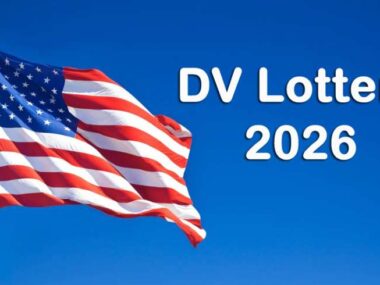Germany’s robust logistics sector, a cornerstone of its economy, offers ample opportunities for logistics coordinators due to high demand in transport, warehousing, and supply chain management. With persistent skill shortages, many employers provide visa sponsorship for foreign professionals, offering salaries between €40,000 and €60,000 annually. This guide details key roles, eligibility, visa pathways, and application steps for securing these jobs in 2026, using government-verified resources.
Why Logistics Coordinator Jobs Are In-Demand
Germany, a global logistics hub, handles over 4 billion tons of goods annually, driven by companies like DHL, DB Schenker, and Amazon. The shortage of skilled coordinators, listed under ANZSCO 133611 (Supply and Distribution Manager), has led to increased visa sponsorship opportunities. Employers seek candidates with organizational skills and supply chain expertise to streamline operations.
The country’s central location, advanced infrastructure, and vast network of highways, railways, and ports contribute to sustained logistics growth. As Germany further expands its e-commerce and global distribution sectors, the need for qualified logistics coordinators will only intensify. New technologies such as automation, AI-driven forecasting, and electric freight transport also drive demand for skilled professionals.
Key Logistics Coordinator Roles
The following roles, offering salaries between €40,000 and €60,000, are accessible with visa sponsorship:
- Logistics Coordinator
Manages transport schedules, inventory, and supplier relations. Requires 1–2 years of experience.
Salary: €40,000–€55,000. - Supply Chain Analyst
Analyzes logistics data to optimize processes. Needs proficiency in ERP systems and 1–3 years of experience.
Salary: €45,000–€60,000. - Warehouse Operations Coordinator
Oversees warehouse activities, including stock management. Requires organizational skills and 1–2 years of experience.
Salary: €40,000–€50,000. - Transport Coordinator
Plans and monitors freight transport, ensuring timely deliveries. Needs logistics experience and German or English proficiency.
Salary: €42,000–€58,000. - Inventory Control Specialist
Tracks inventory levels and coordinates stock replenishment. Requires 1–2 years of experience.
Salary: €40,000–€55,000.
These positions typically require strong communication, stakeholder coordination, and familiarity with warehouse and shipping regulations. Remote or hybrid work is emerging in supply chain analytics, adding flexibility for candidates.
Eligibility Requirements
To qualify for logistics coordinator jobs with visa sponsorship, candidates must meet:
- Qualifications: A diploma or degree in logistics, supply chain management, or a related field (ANZSCO Skill Level 2). Two years of relevant experience can substitute for formal qualifications.
- Experience: 1–3 years in logistics, supply chain, or warehouse operations.
- Language Skills: Basic German (A1–B1) is preferred; English proficiency (IELTS 5.0–6.0 or equivalent) is often sufficient for multinational firms.
- Skills Assessment: A skills assessment from a recognized body may be required for some visa types.
- Health and Character: Pass medical exams and provide police clearances from your home country.
You can verify eligibility details on the official Make it in Germany portal. Immigration authorities and employers typically reference these prerequisites during application processes.
Visa Options for Logistics Coordinators
Non-EU/EEA/Swiss citizens need a work visa. Key options include:
- EU Blue Card: For roles paying at least €45,300/year (2025 threshold). Requires a job offer and relevant qualifications. Valid for up to four years and offers a fast track to permanent residency.
- Skilled Worker Visa: For roles featured on Germany’s shortage occupation list. Requires employer sponsorship, a valid contract, and verification by the Federal Employment Agency.
- Germany Opportunity Card (Chancenkarte): Enables job seekers to enter Germany for up to one year to look for work. Requires recognized qualifications or vocational training, plus sufficient language skills. Verified on the Federal Foreign Office’s website.
Upon securing a job, Opportunity Card holders can convert to a work permit or Blue Card.
Application Process for Logistics Coordinator Jobs
Securing a logistics role with visa sponsorship involves these steps:
- Research Opportunities: Use job portals like Job Index or StepStone to locate roles offering sponsorship. Search terms include “logistics coordinator” and “visa sponsorship.”
- Prepare Documents: Draft a German-format CV (1–2 pages) and cover letter highlighting logistics experience, proficiency with tools like SAP or Excel, and visa eligibility. Include translations and scanned copies where necessary.
- Apply for Jobs: Submit via job portals or staffing agencies such as Randstad Germany. Clearly mention your visa needs and flexibility.
- Interview: Be prepared for behavioral and technical questions on supply chain scenarios, process efficiencies, and KPI monitoring. Show cultural adaptability and a collaborative work style.
- Secure a Job Offer: You must receive an offer from an employer recognized by the Federal Employment Agency (BA) and able to issue visa sponsorship documentation.
- Apply for Visa: Present your job offer, qualifications, medical results, and police clearance to the German embassy, consulate, or VFS Global portal. Processing generally takes 1–3 months for EU Blue Cards.
- Relocate and Register: After arrival, register your residence locally, obtain a tax ID and health insurance, and complete any onboarding required by your employer.
Key Responsibilities of Logistics Coordinators
This role typically involves:
- Coordinating transport schedules and optimizing delivery routes.
- Monitoring inventory levels and setting reorder triggers.
- Utilizing ERP systems (e.g., SAP) and warehouse management systems to track operations.
- Communicating with vendors, transport firms, and internal teams.
- Ensuring compliance with EU and German transport, safety, and customs regulations.
- Analyzing performance metrics (e.g., delivery time, cost per order) and implementing process improvements.
Strong attention to detail, proactive problem-solving, and digital savviness are core competencies employers look for.
Benefits of Logistics Coordinator Jobs
These positions offer:
- Competitive Salaries: Ranging from €40,000 to €60,000/year, with performance-based bonuses.
- Visa Sponsorship: Employers typically assist with processing fees, easing relocation.
- Career Growth: Logistics coordinators can advance to roles like supply chain manager, operations lead, or logistics director.
- Job Stability: Germany’s strong industrial base and export-driven economy ensure long-term demand.
- Residency Pathways: EU Blue Card holders may apply for permanent residency after 21–33 months, depending on language proficiency.
Tips for Success
- Learn Basic German: Even A1 skills significantly aid job interviews and integration. Free resources like Duolingo or paid courses such as Goethe Institut help.
- Target Logistics Hubs: Cities like Frankfurt, Hamburg, Munich, and Leipzig offer diverse roles.
- Network: Use LinkedIn or attend trade fairs like Transport Logistic Munich to connect with hiring managers.
- Verify Employers: Ensure companies are registered with BA to sponsor visas.
- Master Logistics Software: Understanding tools such as SAP, WMS, and advanced Excel adds major value.
Statistics on Logistics Coordinator Jobs
Job Vacancies
In 2025, Germany had over 8,000 logistics coordinator openings, with 25% offering visa sponsorship, especially in Frankfurt and Hamburg (Federal Employment Agency, 2025).
Salary Ranges
- Logistics Coordinator: €40,000–€55,000/year
- Supply Chain Analyst: €45,000–€60,000/year
- Transport Coordinator: €42,000–€58,000/year
Visa Processing Times
- EU Blue Card: 1–3 months
- Opportunity Card (Chancenkarte): 2–4 weeks
(Source: Federal Foreign Office, 2026)
Demand Growth
Logistics roles are expected to grow by 10% by 2030, fueled by e-commerce and global trade expansion (German Federal Statistical Office, 2026).


